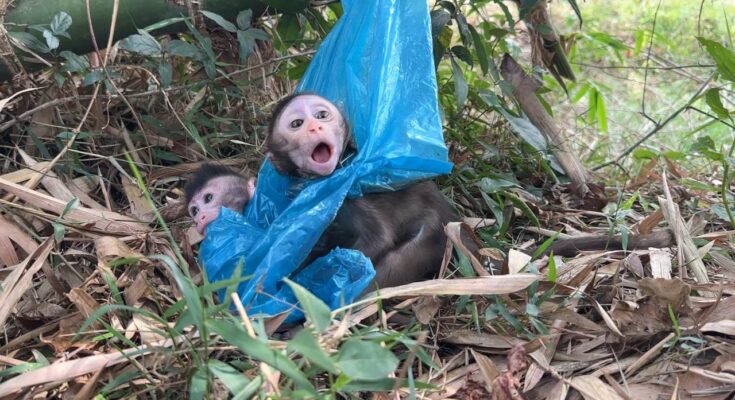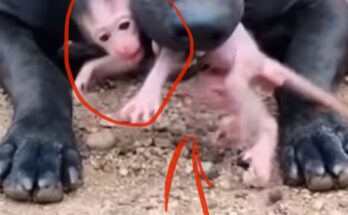Plastic pollution poses a significant threat to wildlife, and baby monkeys are no exception. These vulnerable creatures often find themselves entangled in or ingesting plastic waste, which can be harmful to their health and survival. As responsible caretakers of our planet, it is crucial to take steps to protect these adorable primates from the dangers of plastic pollution.
1. Clean Up Habitats
One of the most effective ways to help baby monkeys is to engage in habitat clean-up initiatives. Whether it’s a local park, forest, or wildlife sanctuary, removing plastic waste from areas where monkeys live can prevent them from encountering dangerous debris. Organize or participate in local clean-up events to make a direct impact on their environment.
2. Educate and Raise Awareness
Many people are unaware of the harm plastic causes to wildlife. Raising awareness about the dangers of plastic pollution can lead to more mindful consumer habits and waste management practices. Share information on social media, in schools, and at community events to highlight how harmful plastics are, not just to monkeys, but to all animals.
3. Support Wildlife Conservation Organizations
There are many organizations dedicated to protecting primates and their habitats. By donating to or volunteering with groups that focus on reducing plastic pollution and saving baby monkeys, you can directly contribute to efforts that provide safe spaces for these animals. These organizations work on everything from habitat preservation to rescue missions.
4. Reduce Personal Plastic Usage
At the individual level, one of the most impactful actions we can take is reducing our plastic consumption. Opt for reusable bags, bottles, and packaging to help decrease the demand for plastic. Less plastic in circulation means fewer chances for baby monkeys to become exposed to these hazardous materials.
In conclusion, protecting baby monkeys from plastic pollution requires both immediate action and long-term solutions. By getting involved in clean-up efforts, raising awareness, supporting conservation, and reducing our own plastic use, we can help create a safer, cleaner world for these precious animals.



